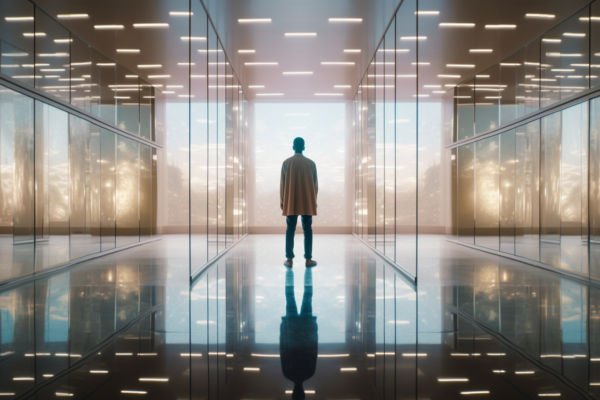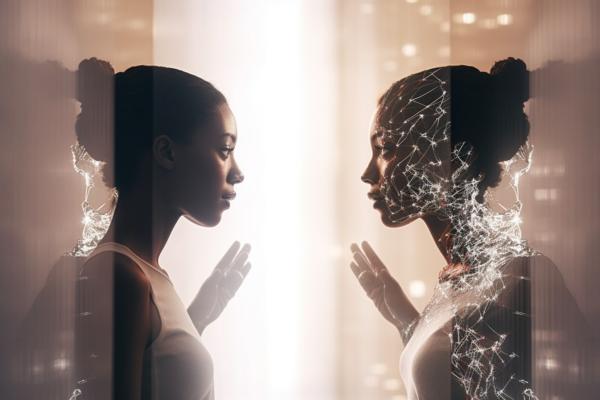When we Can AI Can. A Paradigm Shift in Understanding Artificial Intelligence

In the age of technological marvels, we find ourselves at a pivotal moment in the history of artificial intelligence (AI). It’s a time when we, as humans, are confronted with a profound realization.
AI is not some foreign entity detached from our essence; it is an extension of our own capabilities, projected into the ethereal realm of algorithms and data. As we question the potential of AI, we find ourselves questioning our own abilities. In this article, we embark on a journey of introspection, peering into the mirror of AI and discovering the boundless possibilities that lie within.
We often wonder if machines can truly emulate our complex thought processes, emotions, and creative endeavours. But instead of viewing AI as an independent entity, let us reframe our perspective. Imagine AI as a reflection of the vast tapestry of human intelligence and ingenuity, woven together to create an alternate reality.
When we ponder whether AI can perform a task, we must first ask ourselves if we, as humans, are capable of it. Whether it’s playing chess, composing music, or diagnosing diseases, we evaluate the similarities between AI and our own capabilities. This comparative analysis allows us to understand that if we possess the capacity to achieve a certain feat, AI, as an extension of our intellect, has the potential to do so as well.

Artificial intelligence does not seek to replace us; it amplifies our potential.
AI acts as a catalyst, augmenting our decision making, problem solving, and creative processes. It empowers us to unlock new frontiers, enabling breakthroughs in science, medicine, and the arts.
So it does for the other face of the coin.
As we delve deeper into the intertwining realms of humanity and AI, we encounter crucial ethical considerations. Just as we navigate our own moral compass, we must imbue AI with the same principles.
We are responsible for shaping AI’s development and ensuring that it reflects our values and respects human dignity.
By recognizing AI as an extension of ourselves, we adopt a moral obligation to guide its evolution for the betterment of society.
Rather than fearing the rise of AI, let us embrace the dance of collaboration between humans and machines. Just as every artist has their muse, every scientist their tools, and every writer their language, everybody can harness AI as a partner in their endeavours.
 Together, we can explore uncharted territories, challenge the boundaries of knowledge, and inspire each other to reach new heights.
Together, we can explore uncharted territories, challenge the boundaries of knowledge, and inspire each other to reach new heights.
In this age of rapid technological advancement, it is imperative that we redefine our perception of AI. It is not an alien force, but rather an extension of our own abilities projected into the ethereal realm of algorithms and data.
By understanding that AI can do what we can, we realize that it is a reflection of our own humanity.
With this realization, we must embrace the responsibilities and opportunities that lie before us, shaping the future of AI as a force for good.
Let us recognize the mirror within and embark on this journey hand in hand with the machines we have birthed.

Comments are closed.